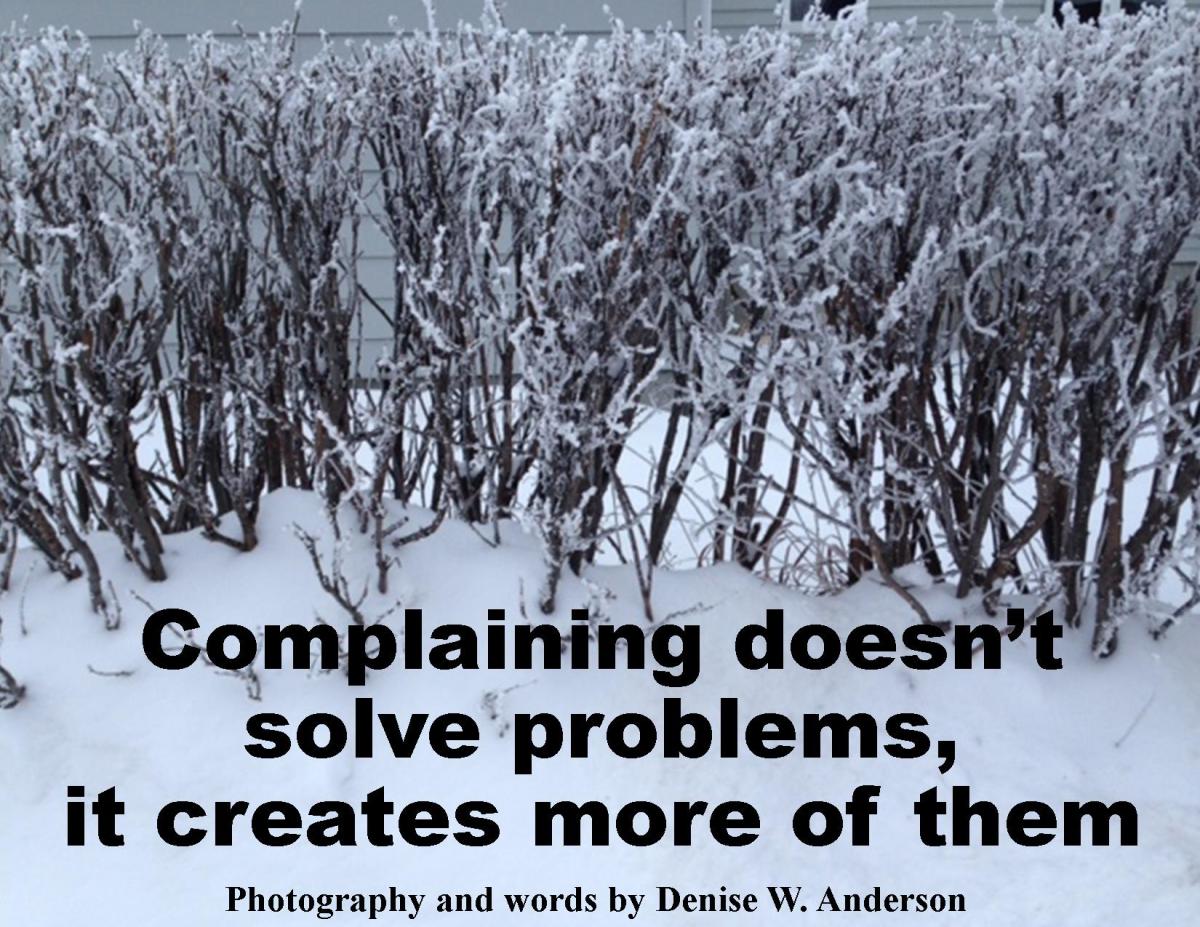How Can We Deal With Disappointment?

How often do you experience disappointment?
Disappointment Happens
We arrive at an appointment only to find out that it has already come and gone. We go to visit a relative and they greet us with a cold shoulder. We wait for someone to call, and it doesn't happen. In these and many other circumstances, the letdown we feel is a keen sense of disappointment.
Disappointment hurts. We put ourselves out, trusting others, depending on them to provide services or love to us, and they let us down. Not just once, but again and again. Disappointment comes when we expect things to happen, and they don't. We feel that others have turned their back on us, or that they just don't care.
The pain of disappointment comes from the thoughts that automatically enter our minds. We tear ourselves or others down for perceived weakness and imperfection. We think that we know why something happened or someone acted a certain way and make decisions based on that faulty information. The table below shows examples of situations that may lead to disappointment, and the resulting negative self-talk.
Circumstance
| Negative Self-Talk
|
|---|---|
Missed appointment
| I am such an idiot
|
No reminder phone call
| I'm not important
|
No gift given
| I don't have any friends
|
Misunderstanding
| I should have known
|
Hurtful words
| I did something wrong
|
Unmet needs
| I am not good enough
|

Disappointment Leads to Other Negative Emotions
When we experience disappointment, our thought patterns leave us with strong negative emotions that take us on a downward spiral. In an effort to save ourselves, we often lash out at the person or entity that was the "cause" of the disappointment.
We may be angry at the secretary behind the appointment desk for not letting us know that the appointment was changed, or we may accuse the organization of conspiring against us. We may assume that our friend doesn't like us anymore, or that a loved one is cheating on us.
No matter the source of our disappointment, lashing out at others in an effort to make ourselves feel better only exacerbates the problem. We say and do things that are embarrassing, humiliating, and even downright cruel. Trust is lost, relationships damaged, and friendships ended prematurely.
Negative self-talk has only one result, and that is negative emotion. The chart below shows how disappointment leads to secondary emotions. The paragraphs that follow teach us how to refute these thoughts and bring back positive feelings of self-worth.
Negative Self-Talk
| Secondary Emotion
|
|---|---|
I am such an idiot
| Anger
|
I'm not important
| Discouragement
|
I don't have any friends
| Loneliness
|
I should have known
| Depression
|
I did something wrong
| Guilt
|
I am not good enough
| Despair
|
Recognize the Distorted Thought Patterns
Once we recognize the distorted thought patterns that come to our minds automatically, we are able to change them. The example circumstances and thoughts listed above include the following:
- "I am such an idiot" - Exaggeration - focusing on a single negative detail taken out of context
- "I'm not important" - Jumping to Conclusions - extending negative feelings by reading more into it
- "I don't have any friends" - Black and White Thinking - everything is extreme, either totally good or totally bad
- "I should have known" - Power and Control - the world revolves around us and we affect everyone and everything
- "I did something wrong" - Making Assumptions - making decisions based on what we perceive others are thinking
- "I am not good enough" - Comparison - measuring individual weaknesses by other's strengths

Refute the Distorted Thoughts
We can turn distorted thoughts around, make them positive, and experience peace of mind and calm assurance in our feelings of self-worth. Below is an example of how this is done:
Example 1
Circumstance: missed appointment
Distorted Thought: "I am such an idiot"
Type of distortion: Exaggeration - focusing on a single negative detail taken out of context
Secondary negative emotion: Anger
Refuting positive thought: "I'm grateful that I was able to reschedule the appointment. I'll write it in my calendar and set a reminder notice on my cell phone."
Although the disappointment is still experienced, it is not allowed to linger. It is replaced with gratitude for the option given to reschedule. Feelings of dignity and self-worth are left intact, and we are able to go forward.
Example 2
Circumstance: hurtful words
Distorted thought: "I did something wrong"
Type of distortion: Making Assumptions - making decisions based on what we perceive others are thinking
Secondary negative emotion: Guilt
Refuting positive thought: "She/he must be having a tough day. I'll ask and see."
It is easy to internalize our feelings when we are disappointed, assuming that we have done something to deserve the way other people are treating us. In reality, we don't know why they are doing what they are and the only way to find out is to ask. When we express words of concern for other's well-being, then they are more likely to treat us with respect. Look at the following table to see other examples of positive self-talk that ward off disappointment.
Circumstance
| Positive Self-Talk
|
|---|---|
Missed appointment
| Oops! I'll keep better records next time!
|
No reminder phone call
| They must have been busy, usually they call
|
No gift given
| They didn't remember my birthday, next time I'll remind them
|
Misunderstanding
| That doesn't sound right, I'll ask to see what is happening
|
Unmet needs
| I don't have to wait for others to meet my needs, I can do that myself
|
Positive Self-talk Leads to Positive Emotions
When we feel disappointment, we do not have to keep the negative self-talk that comes into our minds. We can turn our thoughts around, look for the good, and come away with a better attitude. Positive self-talk begins with belief in ourselves and others. If we believe that humanity is basically good, then we acknowledge that others are doing their best.
To refute distorted thinking patterns, develop a reservoir of positive thoughts that to draw from. These are called "affirmations." They affirm feelings of importance and worth, therefore, they build us up.
When we have our reservoir of positive emotions filled, we don't see negative happenings as affronts to our dignity and self-respect, rather, they are simply annoyances that get in the way temporarily. We wash them off like dirt that happens to get on our hands or feet when we are going about our daily lives. They don't scar us or maim our ability to function.

Enjoy the Feelings of Peace and Calm
Words feed our souls. The soul that is well nourished exudes confidence and strength. The eyes are bright, and the smile is readily present. Just like an athlete poised for action, when the whistle blows, the body springs forward, steadily making progress toward the goal. The soul that is ready for action knows that there will be difficult moments, but these do not overpower, rather, they are deflected as if by an invisible shield.
As we use our cognitive ability to recognize and refute the distorted thinking patterns that often come automatically, we fill our lives with good and uplifting words and actions that shield us when difficult things happen. Then, we enjoy feelings of peace and calm.
This content is accurate and true to the best of the author’s knowledge and is not meant to substitute for formal and individualized advice from a qualified professional.
© 2014 Denise W Anderson








